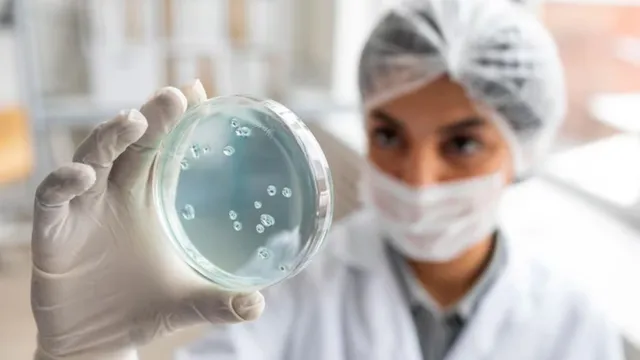- By Supratik Das
- Mon, 19 May 2025 03:14 PM (IST)
- Source:JND
In a remarkable scientific discovery, a combined team of researchers from NASA's Jet Propulsion Laboratory (JPL) has found 26 new species of previously unknown bacteria within the highly sterilised clean rooms of NASA buildings specifically designed to be almost microbe-free. The research, published in the journal Microbiome on May 12, underscores a paradox: even in spaces designed to prevent contamination, life finds a way.
The clean rooms involved were utilised to prepare NASA's Phoenix Mars Lander, launched in August 2007. Samples were drawn from the Payload Hazardous Servicing Facility at NASA's Kennedy Space Center in Florida. Employing genetic analysis, researchers isolated 53 bacterial strains, which they ascertained belong to 26 completely novel species. The microbes are extremophiles, capable of thriving in the most extreme environments — from deep-sea hydrothermal vents to space vacuum.
Why This Discovery Matters?
"Knowing which microorganisms can potentially survive space's extreme conditions is important for avoiding forward contamination," Alexandre Rosado, who is a researcher at King Abdullah University of Science and Technology (KAUST) in Saudi Arabia, said. This study is regarded as essential to safeguarding planets such as Mars from inadvertent microbial colonisation that could threaten both scientific discoveries and the future of interplanetary research. Besides, these microbes may provide huge advantages to our planet. Scientists discovered genes for DNA repair, chemical detoxification, and increased metabolism, all of which could be applied in medicine, food preservation, and industrial biotechnology.
Also read: Ice In Outer Space? NASA Reveals Frozen Water In Distant Star System | Here's All You Need To Know
NASA may use the results to make its sterilisation techniques for upcoming space missions. "We are revealing microbial secrets that not only protect space missions but might revolutionise life sciences and bioengineering," retired JPL scientist and study lead author Kasthuri Venkateswaran said. Junia Schultz, a postdoctoral research fellow at KAUST, said the new genes may be engineered for useful human applications, potentially leading to new medicines and preservation methods.

